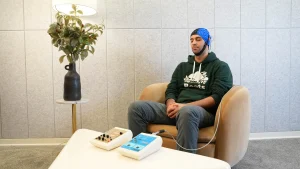Adolescence is a time of profound growth—physically, emotionally, and cognitively. It’s a period filled with transitions: navigating identity, increasing academic pressure, developing social relationships, and moving toward independence. But for many teens, these changes can become overwhelming, especially when paired with underlying mental health challenges.
Recent statistics paint a sobering picture: rates of anxiety, depression, self-harm, and suicide among teens have surged in the past decade. The pandemic only deepened the crisis, leaving many young people feeling isolated, misunderstood, and unsupported. Now more than ever, supporting teens with mental health challenges must be a top priority for families, schools, and society at large.
Understanding Teen Mental Health Challenges
1. Anxiety Disorders – Anxiety is the most common mental health issue in teens. While occasional stress is normal and sometimes even helpful, chronic anxiety—whether in the form of generalized anxiety disorder, panic disorder, or social anxiety—can impair a teen’s daily functioning. Teens with anxiety may struggle with school performance, avoid social situations, or become emotionally overwhelmed in everyday scenarios. These teens might experience physical symptoms like chest pain, rapid heart rate, nausea, or dizziness, which can be misinterpreted as medical problems rather than emotional ones. Left unaddressed, anxiety disorders can limit teens’ confidence, independence, and willingness to try new experiences.
2. Depression – Teen depression is often misunderstood. While adults may associate depression with deep sadness or crying, in teens it often manifests as irritability, mood swings, apathy, and withdrawal from family and friends. A teen with depression may appear lazy or unmotivated when in fact they’re overwhelmed by emotional fatigue. They may stop participating in sports or hobbies, exhibit changes in eating or sleep patterns, and express hopelessness or even suicidal thoughts. Depression in adolescence is strongly correlated with academic failure, substance abuse, and long-term mental health struggles if not addressed early and effectively.

3. ADHD (Attention-Deficit/Hyperactivity Disorder) – ADHD doesn’t always mean a hyperactive child bouncing off the walls. Many teens with ADHD present with inattentiveness, forgetfulness, disorganization, and difficulty completing tasks. They may underperform in school despite being intelligent or creative. Executive functioning skills—such as planning, time management, and emotional regulation—are often impaired. These deficits can lead to frustration, low self-esteem, and conflict with parents or teachers. ADHD is often missed in teens, especially girls, who may internalize their symptoms. Treatment plans that combine behavioral strategies, academic accommodations, and neurofeedback training can dramatically improve their quality of life.
4. Trauma and PTSD – Many teens experience trauma that leaves a lasting impact—be it abuse, bullying, a serious accident, or the loss of a loved one. PTSD in teens can manifest through nightmares, flashbacks, social withdrawal, heightened irritability, or sudden emotional outbursts. Some may turn to risky behaviors like substance use or self-harm as a way of coping. Trauma changes brain function and nervous system responses, and early support is critical to reduce its long-term effects. Trauma-informed care and brain-based therapies like neurofeedback or PBM can help reset the nervous system and promote healing.
5. OCD (Obsessive-Compulsive Disorder) – OCD often begins in adolescence and is characterized by intrusive, unwanted thoughts (obsessions) and repetitive behaviors (compulsions) performed to relieve distress. A teen might repeatedly wash their hands, check locks, or silently repeat phrases in their mind. These rituals may seem irrational but feel urgent and necessary to the individual. OCD can be extremely time-consuming, interfere with school or sleep, and create feelings of shame. It’s essential to recognize the signs early and differentiate OCD from typical teenage routines or perfectionism. A comprehensive approach that includes exposure therapy, neurofeedback, and brain mapping is often effective.
6. Sleep Disorders – Teen sleep is often disrupted—not just by academic and social pressures, but by biological changes in circadian rhythms. However, sleep deprivation is a major contributor to mental health problems. Teens who don’t get enough rest are more prone to depression, anxiety, mood swings, and even hallucinations in extreme cases. Causes range from insomnia and delayed sleep phase syndrome to sleep apnea and tech-induced disruptions (e.g., phones in bed). Addressing sleep habits through lifestyle changes, light therapy, and neurofeedback for sleep regulation can have a powerful impact on a teen’s well-being.
Myths vs. Facts About Teen Mental Health
Let’s debunk a few common myths:
❌ Myth #1: “They’re just being dramatic.”
✅ Fact: Teens often lack the vocabulary to express distress, but their feelings are valid.
❌ Myth #2: “If we talk about mental health, it’ll put ideas in their head.”
✅ Fact: Open conversations actually reduce stigma and encourage early intervention.
❌ Myth #3: “Teens are resilient; they’ll get over it.”
✅ Fact: Resilience develops with support, not denial of problems.
❌ Myth #4: “Only kids with trauma need help.”
✅ Fact: Mental health issues can arise from genetic, environmental, or neurological factors—not just trauma.

Warning Signs to Watch For
Catching mental health struggles early makes a world of difference. Here are some common red flags:
Sudden drop in academic performance
Social withdrawal or isolation
Unexplained physical complaints (headaches, stomachaches)
Dramatic changes in sleep or appetite
Loss of interest in previously enjoyed activities
Talking about feeling hopeless, worthless, or trapped
Risky behavior, substance use, or self-harm
Parents and educators should pay attention to patterns and trust their instincts. If something feels “off,” it’s worth a conversation.
How to Talk to Teens About Mental Health
Teens often resist opening up, but that doesn’t mean they aren’t listening. Here are some communication tips:
Create a safe, non-judgmental space. Avoid criticism or advice-giving in the first conversation.
Ask open-ended questions. Instead of “Are you okay?” try “I’ve noticed you’re not yourself lately—want to talk about it?”
Validate their emotions. Say, “That sounds really tough. I’m here for you.”
Normalize getting help. Mention how common therapy or coaching has become.
Stay available. Even if they push you away at first, consistency builds trust.

Brain-Based Solutions That Help
At Elumind, we offer a holistic, neuroscience-driven approach to treating teen mental health issues. Some of our most effective tools include:
Neurofeedback – A non-invasive therapy that trains the brain to self-regulate. By using real-time brainwave feedback, teens can learn to manage stress, improve focus, and reduce symptoms of anxiety, ADHD, PTSD, and more.
Biofeedback – This technique helps teens control physiological responses like heart rate, muscle tension, and breathing. It is especially effective for anxiety, panic attacks, and stress-related symptoms.
PBM (Photobiomodulation) – PBM uses low-level light therapy to stimulate brain function and cellular repair. It’s shown promising results in managing depression, improving mood, and aiding recovery from trauma.
QEEG Brain Map – This powerful diagnostic tool provides a visual map of brainwave activity, identifying imbalances and guiding targeted treatment. It helps personalize therapy and is especially valuable in diagnosing ADHD and mood disorders.
Tools for Caregivers and Educators
Encourage structure and routine. Predictability reduces stress for teens.
Model healthy coping strategies. Show how you manage stress, disappointment, or uncertainty.
Limit screen time and encourage sleep hygiene. Help teens set boundaries with technology and prioritize rest.
Promote physical activity. Exercise is a proven mood booster.
Collaborate with school counselors. They can support with accommodations and check-ins.
Know when to refer. If concerns persist, seek help from mental health professionals.
Final Thoughts: You Are Not Alone
Supporting a teen with mental health challenges is never easy. It can feel like you’re navigating a maze without a map. But with the right tools, support system, and early interventions, you can help your teen not only cope but thrive.
At Elumind, we are here to walk that journey with you. Our team of experts combines science-backed technologies like Neurofeedback and Brain Mapping with compassion and care tailored to each individual’s needs.
You don’t have to do this alone. Help is available. Hope is real. And healing is possible.








